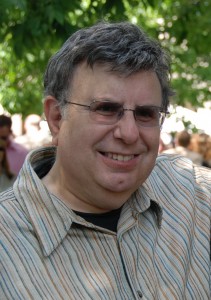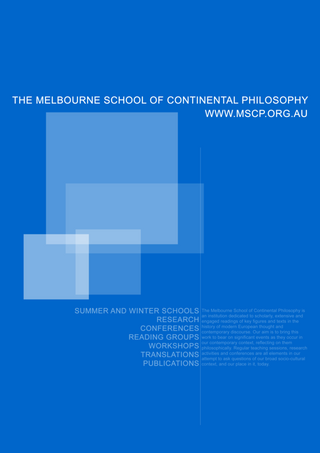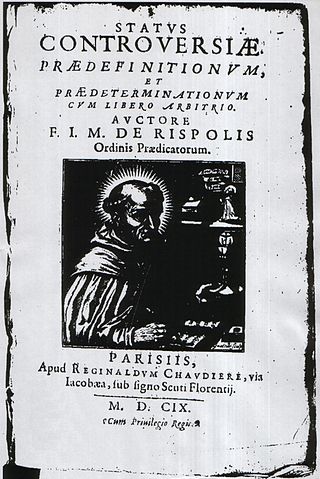
Heythrop College, University of London, was a constituent college of the University of London between 1971 and 2018, last located in Kensington Square, London. It comprised the university's specialist faculties of philosophy and theology with social sciences, offering undergraduate and postgraduate degree courses and five specialist institutes and centres to promote research.
Philosophy for Children, sometimes abbreviated to P4C, is a movement that aims to teach reasoning and argumentative skills to children. There are also related methods sometimes called "Philosophy for Young People" or "Philosophy for Kids". Often the hope is that this will be a key influential move towards a more democratic form of democracy. However, there is also a long tradition within higher education of developing alternative methods for teaching philosophy both in schools and colleges.
Contemporary philosophy is the present period in the history of Western philosophy beginning at the early 20th century with the increasing professionalization of the discipline and the rise of analytic and continental philosophy.

The American Philosophical Association (APA) is the main professional organization for philosophers in the United States. Founded in 1900, its mission is to promote the exchange of ideas among philosophers, to encourage creative and scholarly activity in philosophy, to facilitate the professional work and teaching of philosophers, and to represent philosophy as a discipline. The APA's governance has included Robert Audi, Jaegwon Kim and Ruth Barcan Marcus.

Anthony Clifford Grayling is a British philosopher and author. He was born in Northern Rhodesia and spent most of his childhood there and in Nyasaland. In 2011 he founded and became the first Master of New College of the Humanities, an independent undergraduate college in London. Until June 2011, he was Professor of Philosophy at Birkbeck, University of London, where he taught from 1991. He is also a supernumerary fellow of St Anne's College, Oxford, where he formerly taught.

Philosophy Now is a bimonthly philosophy magazine sold from news-stands and book stores in the United Kingdom, United States, Australia, and Canada; it is also available on digital devices, and online. It aims to appeal to the wider public, as well as to students and philosophy teachers. It was established in 1991 and was the first general philosophy magazine.

Royal Society for Public Health (RSPH) is an independent, multi-disciplinary charity concerned with the improvement of the public's health.
Women have made significant contributions to philosophy throughout the history of the discipline. Ancient examples include Maitreyi, Gargi Vachaknavi, Hipparchia of Maroneia and Arete of Cyrene. Some women philosophers were accepted during the medieval and modern eras, but none became part of the Western canon until the 20th and 21st century, when some sources indicate that Simone Weil Susanne Langer, G.E.M. Anscombe, Hannah Arendt and Simone de Beauvoir entered the canon.

Allan Stanley Gotthelf was an American philosopher. He was a scholar of the philosophies of both Aristotle and Ayn Rand.

The Melbourne School of Continental Philosophy (MSCP) is an institution dedicated to scholarly, extensive and engaged readings of key figures and texts in the history of modern European thought and contemporary discourse. The School was founded in 2003 and formalised its status as an independent, not-for-profit organisation in 2004. It is based in Melbourne, Australia and is housed by The University of Melbourne.

The Philosopher is a long-running periodical, established in 1923 by the Philosophical Society of England. Originally in print format, following a split in the mid-2010s the publication now exists in two competing formats.

Café philosophique is a grassroots forum for philosophical discussion, founded by philosopher Marc Sautet in Paris, France, on December 13, 1992.
Philosophical consultancy, also sometimes called philosophical practice or philosophical counseling or clinical philosophy, is a contemporary movement in practical philosophy. Developing since the 1980s as a profession but since the 1950s as a practice, practitioners of philosophical counseling ordinarily have a doctorate or minimally a master's degree in philosophy and offer their philosophical counseling or consultation services to clients who look for a philosophical understanding of their lives, social problems, or even mental problems. In the last case, philosophical counseling might be in lieu of, or in conjunction with, psychotherapy. The movement has often been said to be rooted in the Socratic tradition, which viewed philosophy as a search for the Good and the good life. A life without philosophy was not worth living for Socrates. This led to the philosophy of Stoicism, for example, resulting in Stoic therapy.
The Society for European Philosophy (SEP) is a philosophical society founded in 1996. The organization sponsors an annual conference. It is the largest society for Continental philosophy in the UK.
Philosophy For All (PFA) is a London-based association of people interested in philosophy, founded in 1998 to bridge the gap between professional and amateur philosophers by holding talks, lectures and debates. Many of its events are held in pubs, and others in adult education colleges.

Philosophy in Malta refers to the philosophy of Maltese nationals or those of Maltese descent, whether living in Malta or abroad, whether writing in their native Maltese language or in a foreign language. Though Malta is not more than a tiny European island in the middle of the Mediterranean Sea, for the last six centuries its very small population happened to come in close contact with some of Europe's main political, academic and intellectual movements. Philosophy was among the interests fostered by its academics and intellectuals.
Terrell Ward Bynum is an American philosopher, writer and editor. Bynum is currently director of the Research Center on Computing and Society at Southern Connecticut State University, where he is also a professor of philosophy, and visiting professor in the Centre for Computing and Social Responsibility in De Montfort University, Leicester, England. He is best known as a pioneer and historian in the field of computer and information ethics; for his achievements in that field, he was awarded the Barwise Prize of the American Philosophical Association, the Weizenbaum Award of the International Society for Ethics and Information Technology, and the 2011 Covey Award of the International Association for Computing and Philosophy. In addition, Bynum was the founder and longtime editor-in-chief of the philosophy journal Metaphilosophy ; a key founding figure (1974–1980) and the first executive director (1980–1982) of the American Association of Philosophy Teachers; biographer of the philosopher/ mathematician Gottlob Frege, as well as a translator of Frege's early works in logic. Bynum's most recent research and publications concern the ultimate nature of the universe and the impact of the information revolution upon philosophy.

The Society for Women in Philosophy was created in 1972 to support and promote women in philosophy. Since that time the Society for Women in Philosophy or "SWIP" has expanded to many branches around the world, including in the US, Canada, Ireland, the UK, the Netherlands, Flanders, and Germany. SWIP organizations worldwide hold meetings and lectures that aim to support women in philosophy; some, such as SWIPshop, focus exclusively on feminist philosophy, while others, such as SWIP-Analytic, focus on women philosophers working in other areas. One of the founding members of the Society for Women in Philosophy was Alison Jaggar, who was also one of the first people to introduce feminist concerns into philosophy. Each year, one philosopher is named the Distinguished Woman Philosopher of the Year by the Society for Women in Philosophy.
Philosophy Sharing Foundation (PSF) is a non-profit organisation founded in Malta in 2012. Its mission is to bring together philosophy enthusiasts; to inspire, strengthen and promote philosophical activity in the Maltese Islands; and to contribute towards society through Philosophy. The foundation does not adhere to, or profess, any single creed or ideology. Its official languages are Maltese and English.

The Department of Philosophy is an academic division in the Faculty of Arts and Humanities at King's College London. It is one of the largest and most distinguished centres for the study of philosophy in the United Kingdom.












